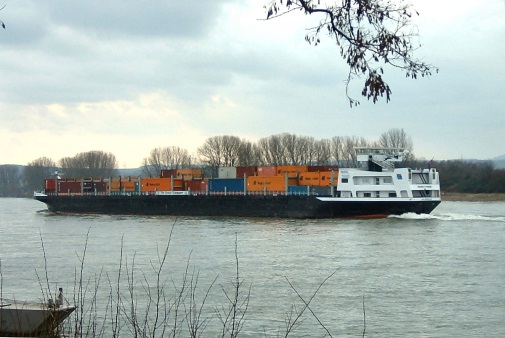Waste?
13 March 2015 • John de Croon
asset management strategie, risk management, policy development
Did you know that in recent years hundreds of millions of Euros in subsidies were spent on improving the waterways in the past 15 years? That in itself would not be a problem were it not the European Court of Auditors last week concluded that this money yielded almost nothing and that is of course unfortunate[1]. That Court concluded that the money has not gone to the right issues. According a member of the European Parliament Wim van de Camp the money is spent on individual projects and in different countries. The relations are not taken into consideration. What can we learn from here now? We look at some situations and come as you're used to, with an opinion.
A little further with the ports. Several cities in the Netherlands are currently working on the development of port hubs. On the website of news provider BNR says Michiel Nijdam (port economist at Erasmus University in Rotterdam) that in the Netherlands, Germany and Belgium there is only room for two to three major hubs and a few smaller[2]. If several areas are developing such a hub, we may soon have overcapacity as a result. That is no good use of limited resources. The question is whether a port really is a natural monopoly. Indeed, there is competition between ports, so apparently there is still a market. Coordination between ports implies cartels, where the user pays the ultimate prize. Is it bad that there is too much capacity? We look at another sector that was previously public, but now is commercial.

Figure: wikimedia commons, F. Lang[3]
We move on to the energy sector. Before liberalization began in the late 90s, there was an organization called “Sep” in the Netherlands (Cooperating Electricity Producers). These Sep determined with the "LEO" (National Economic Optimization) how many plants and import capacity were needed in the Netherlands[4]. Through a central mechanism overcapacity to too many new plants was prevented. After the introduction of an open market, the former market parties suddenly became competitors and this optimization was gone. The producers have invested in new plants and in addition of extra imports (a lot of cheap green electricity from Germany) this has resulted in overcapacity with a magnitude of gigawatts. A new power plant from Eneco in Rotterdam is even dismantled and shipped to Asia[5]. According to the newspaper Volkskrant of 4 May 2013, in 2012 where was between 5 and 6 billion in additional depreciation on the Dutch power plants. That's not really bad in a market economy you would say? Not in itself, were it not that those financial losses have to come from somewhere. In case of overcapacity in the energy market one can not increase the rates (because too much competition), so shareholders receive less dividends. In the case of the energy companies these mostly are foreign governmental agencies, so the (in this case foreign) taxpayer pays the damage. Compared with the previously depreciation of billions the not effectively invested hundred million in waterways is only small money.
ISO55000 states that the basic principles of asset management and asset management support system can help to achieve optimal efficiency (where you have to define what you mean by optimal). Now you can discuss the meaning of the word optimal and the system boundary of the asset management system, but ultimately I do not think a depreciation of over 5 billion euros to be paid by the (foreign) tax payers is optimal. Is that useful?
From the examples as described above it can be deduced that uncoordinated investment can lead to overcapacity. If those investments are done by various (local and regional) authorities, it will all eventually be paid with public money. This can be considered as wasteful, since the same effect with fewer resources could be achieved. Only it is questionable whether it is really wasteful. After all for investors (market players) the potential waste is an incentive to act better. This will make them smarter designs, which are cheaper or offer more services, and so on. If an investor would know for sure the investment is going to pay off, there is a great danger that this investor becomes lazy (perhaps a black / white characterization of monopolies in some sectors for liberalization). So in the longer term the waste leads to savings.
For commercial parties there is no need for coordination between projects. If someone wants to build a power plant when there is excess of capacity, then this party must seek for stimuli or else accept the consequences just mentioned. Competition between commercial companies which can go bankrupt is a part of the game; the downside is that otherwise you would get monopolists with "laziness" as risk. For natural monopolies such as infrastructures you have to think of something like to give incentives for improvement (think of the various regulators which currently exist).
It is very clear that governments should have no share in market parties. When it goes wrong, it leads to unwanted waste which we have to pay together after all.
[1] http://www.bnr.nl/nieuws/454935-1503/honderden-miljoenen-aan-subsidie-naar-binnenvaart-levert-niets-op
[2] http://www.bnr.nl/nieuws/beurs/938541-1312/overcapaciteit-dreigt-door-ambitieuze-binnenhavens
[3] Wikipedia Binnenvaart, container ship Amistade-Nyks by F. Lang (licence number CC BY-SA 3.0)
[4] Sep’s role is taken over by TenneT. Due to competition ‘Leo’ no longer exists
[5] http://www.volkskrant.nl/economie/elektriciteitscentrale-rotterdam-is-overbodig-en-wordt-verscheept-naar-azie~a3436389/
John de Croon is partner at AssetResolutions BV, a company he co-founded with Ype Wijnia. In turn, they give their vision on an aspect of asset management in a weekly column. The columns are published on the website of AssetResolutions, http://www.assetresolutions.nl/en/column
<< back to overview
|


